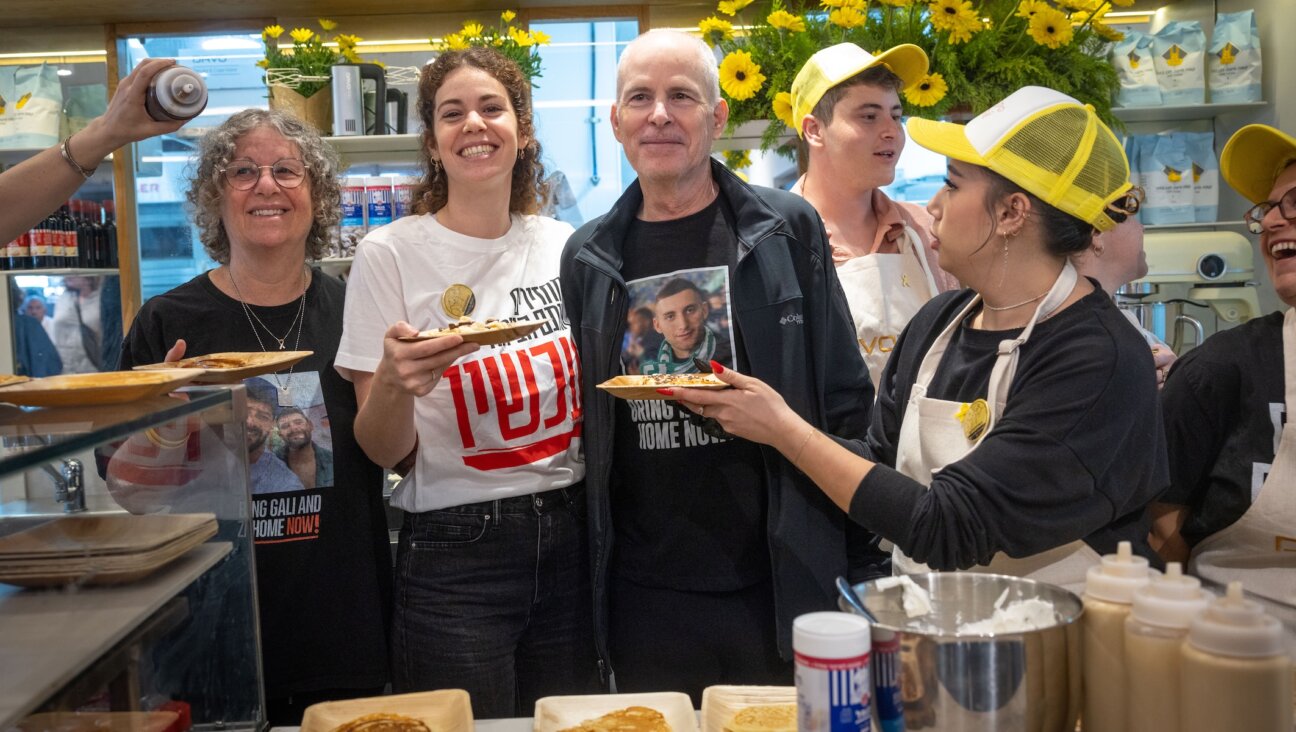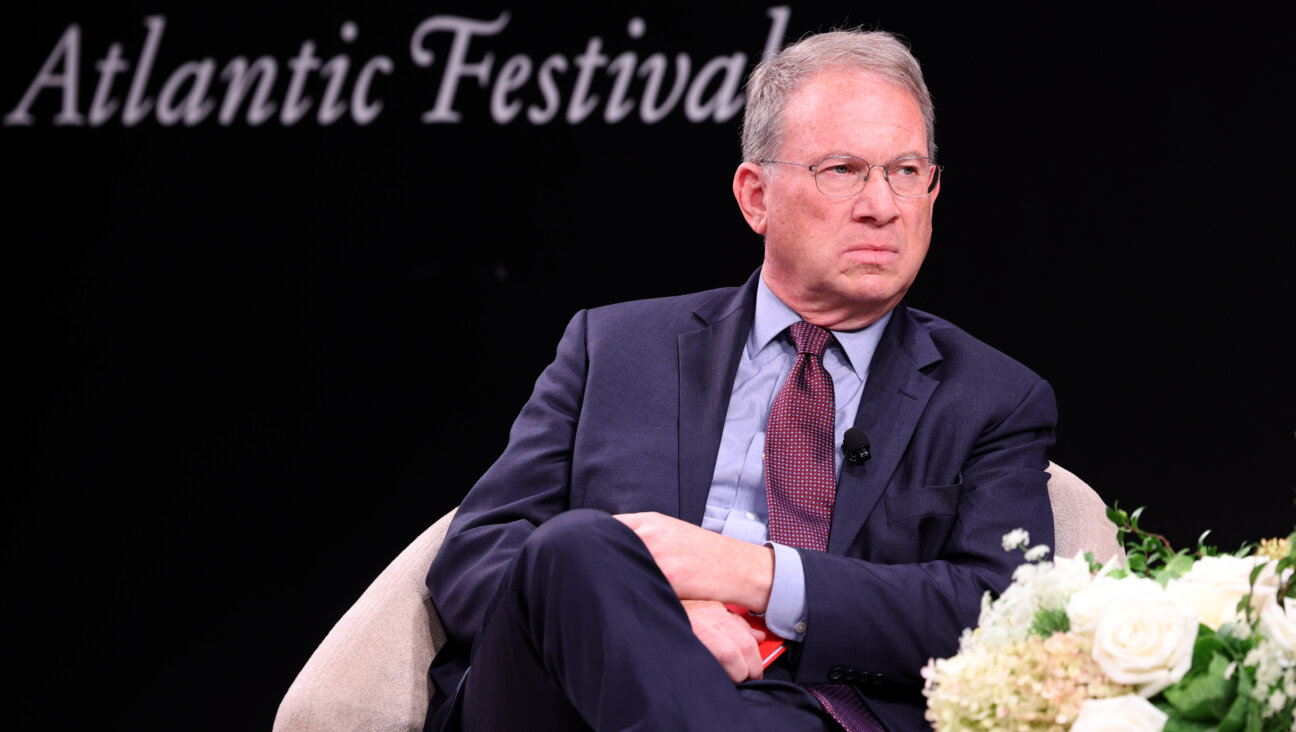A Kahane Disciple Wins Big Vote in Israeli Lubavitch Stronghold
KFAR CHABAD, Israel — Bucking the advice of their rabbis, about 30% of voters in Israel’s main Chabad-Lubavitch stronghold cast their ballots for a candidate who advocated the mass expulsion of Arabs, branded Israeli leaders traitors and called for the execution of some liberals.
Baruch Marzel, running under the banner of the National Jewish Front, failed to reach the 2% threshold needed to qualify for a Knesset seat and, perhaps more strikingly, failed to win a single vote in dozens of municipalities throughout Israel. Even in the West Bank, where opposition to Israeli territorial concessions is much higher than it is in Israel, Marzel — a 46-year-old Boston native and a disciple of the late Rabbi Meir Kahane — managed to win significant support in only a few of the smallest, most extreme Jewish settlements in the West Bank.
But in Kfar Chabad — the Lubavitch town located inside Israel proper, just east of Tel Aviv — Marzel won almost a third of the 1,714 votes cast, even though the local rabbis had urged residents to back parties with a realistic chance of winning Knesset seats. His next-best showings inside Israel’s pre-1967 borders were in the historic Galilee city of Tzfat (8%) and the working-class southern city of Kiryat Malachi (4%), two municipalities with sizable Chabad communities.
Marzel’s support from Chabad voters poses a potentially embarrassing development for the global network of emissaries loyal to the vision of the late Lubavitcher rebbe, Rabbi Menachem Mendel Schneerson. The late rabbi strongly opposed Israeli territorial concessions, as do many of Chabad’s emissaries. But the emissaries have tried to keep a low profile on the issue, for fear of developing an extremist image that would hurt their wider efforts to raise funds among American donors and to encourage increased religious practice among Jews of all denominational stripes.
Chabad officials in America seemed reluctant to comment for the record on Marzel’s results, even as they tried to dismiss his success among their followers as a protest vote against the other religious parties. Rabbi Levi Shemtov, Chabad’s representative in Washington, stressed that the rabbinical court in Kfar Chabad had directed followers not to vote for Marzel.
“The responsibility for matters in Israel, which lies with the Chabad rabbinate in Israel, cannot be compromised because individuals, even many of them, decide to undo their instructions. If they said that Chabad will not back any particular party, then that’s what they meant,” Shemtov said. “They didn’t back anybody in a proactive sense, and they did tell people not to vote Marzel because they wanted two things to happen: every vote to be counted, and for people to make their own decisions. Voting Marzel undermines the idea of every vote being counted.”
Rabbi Menachem Gluckowsky, deputy chief justice of the Chabad Rabbinical Council in Israel, told the Forward that “we decided to come out very strongly to encourage people to vote for parties that would get into the Knesset.”
“Marzel has extremist views, and they are not in line with the views of our community,” Gluckowsky said. “Most people don’t even know what his positions are.”
Political observers say that members of Israel’s Chabad community have veered further right than most other religious groups in Israel in recent years, with many gravitating toward Marzel’s views.
“The Chabad community has increasingly leaned toward the right in the past three or more elections,” said Menachem Friedman, one of Israel’s leading experts on ultra-Orthodoxy and a professor of sociology and anthropology at Bar-Ilan University in Ramat Gan. Friedman described Marzel’s party as a continuation of Kach, the banned Israeli political party founded by Kahane.
When he first met Kahane, Marzel was in eighth grade and working on a project about the rabbi’s militant organization, the Jewish Defense League. Police first detained Marzel when he was 14, after he joined Kahane in a road demonstration during then-secretary of state Henry Kissinger’s visit to Israel. He worked closely with Kahane until the rabbi was assassinated in New York in 1990. Indicating his continuing commitment to Kahane’s legacy, Marzel ran campaign commercials featuring photographs of his mentor in the background.
During last week’s elections, the party won wide support especially in the more extremist West Bank areas such as Hebron, where Marzel lives with his wife and nine children.
According to Friedman, what differentiates Marzel from most other religious political figures is his demand for the government to enforce rabbinical law in day-to-day life in Israel before the coming of the messiah.
Marzel had his own explanation for his success with Chabad followers: “What attracts them to me,” he told the Forward, “are my positions on keeping the wholeness of the Torah the wholeness of the Jewish nation and the wholeness of the Land of Israel.”
Sitting in his small Jerusalem office, where about a half-dozen volunteers share two computers in rooms with walls of chipped white paint, Marzel said that he could have won as much as 80% of the vote had the Kfar Chabad rabbinical court not issued a decision before the elections discouraging followers from voting for smaller parties like his. In the last elections, in 2003, Marzel ran with the Herut party, which won 73% of the vote in Kfar Chabad.
Marzel said that the recent rabbinical ruling was driven by the Chabad leadership’s decision to advance its economic interests by backing a party that would win parliamentary seats and try to increase the money budgeted to the community. Menachem Brod, Chabad’s spokesman in Israel, dismissed the allegation as “baseless” and said the court decided to discourage voting for smaller parties after the 2003 elections, when Herut failed to get any parliamentary seats, because it viewed the community’s votes as “wasted.”
According to Marzel, more than 100 members of the Chabad community volunteered to help his election campaigning. However, Chabad supporters did not contribute a “serious amount” of money to his campaign, which raised only about $100,000 in total. Marzel said that in a quiet show of support for him, more than a fifth of Kfar Chabad’s voters did not show up at the polling stations.
A 40-year-old teacher living in Kfar Chabad, who asked to be identified only as Moti, said that he ignored the rabbinical edict and followed through with his decision to vote for Marzel.
“All the other large religious parties have cooperated in the past with governments that have given up Jewish lands,” said the teacher, who spoke on condition of anonymity because he was concerned his opposition to the court’s decision might stir up antagonism towards him in his community. “Marzel would never enter into a government coalition which gives up land.”
The Forward is free to read, but it isn’t free to produce

I hope you appreciated this article. Before you go, I’d like to ask you to please support the Forward.
At a time when other newsrooms are closing or cutting back, the Forward has removed its paywall and invested additional resources to report on the ground from Israel and around the U.S. on the impact of the war, rising antisemitism and polarized discourse.
Readers like you make it all possible. We’ve started our Passover Fundraising Drive, and we need 1,800 readers like you to step up to support the Forward by April 21. Members of the Forward board are even matching the first 1,000 gifts, up to $70,000.
This is a great time to support independent Jewish journalism, because every dollar goes twice as far.
— Rachel Fishman Feddersen, Publisher and CEO
2X match on all Passover gifts!
Most Popular
- 1

Film & TV What Gal Gadot has said about the Israeli-Palestinian conflict
- 2

News A Jewish Republican and Muslim Democrat are suddenly in a tight race for a special seat in Congress
- 3

Fast Forward The NCAA men’s Final Four has 3 Jewish coaches
- 4

Culture How two Jewish names — Kohen and Mira — are dividing red and blue states
In Case You Missed It
-
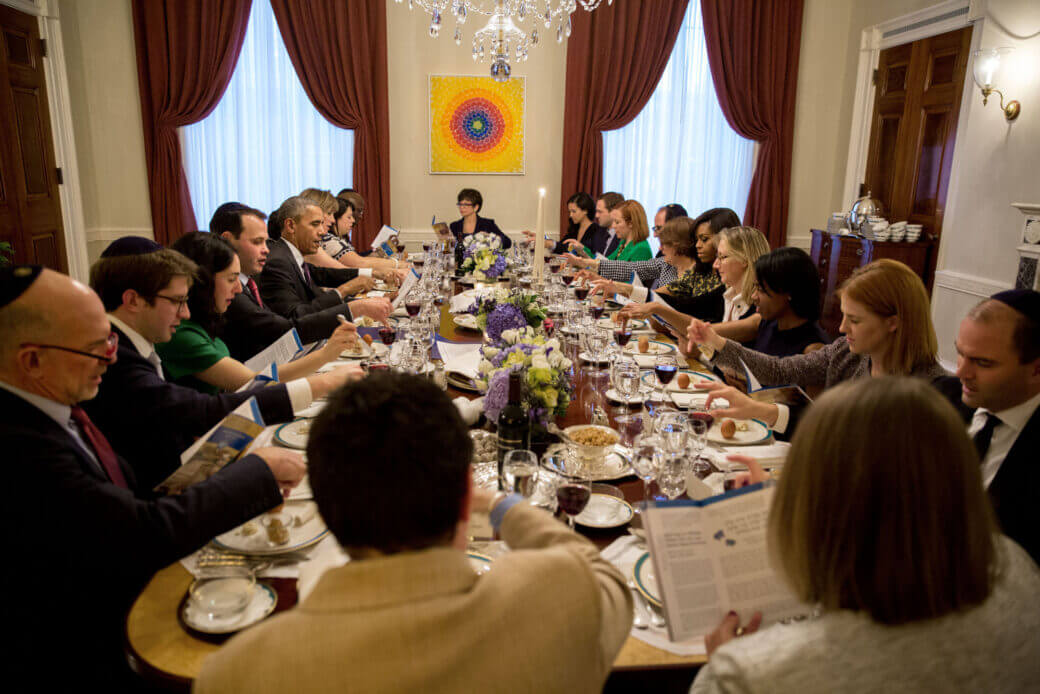
Books The White House Seder started in a Pennsylvania basement. Its legacy lives on.
-

Fast Forward The NCAA men’s Final Four has 3 Jewish coaches
-
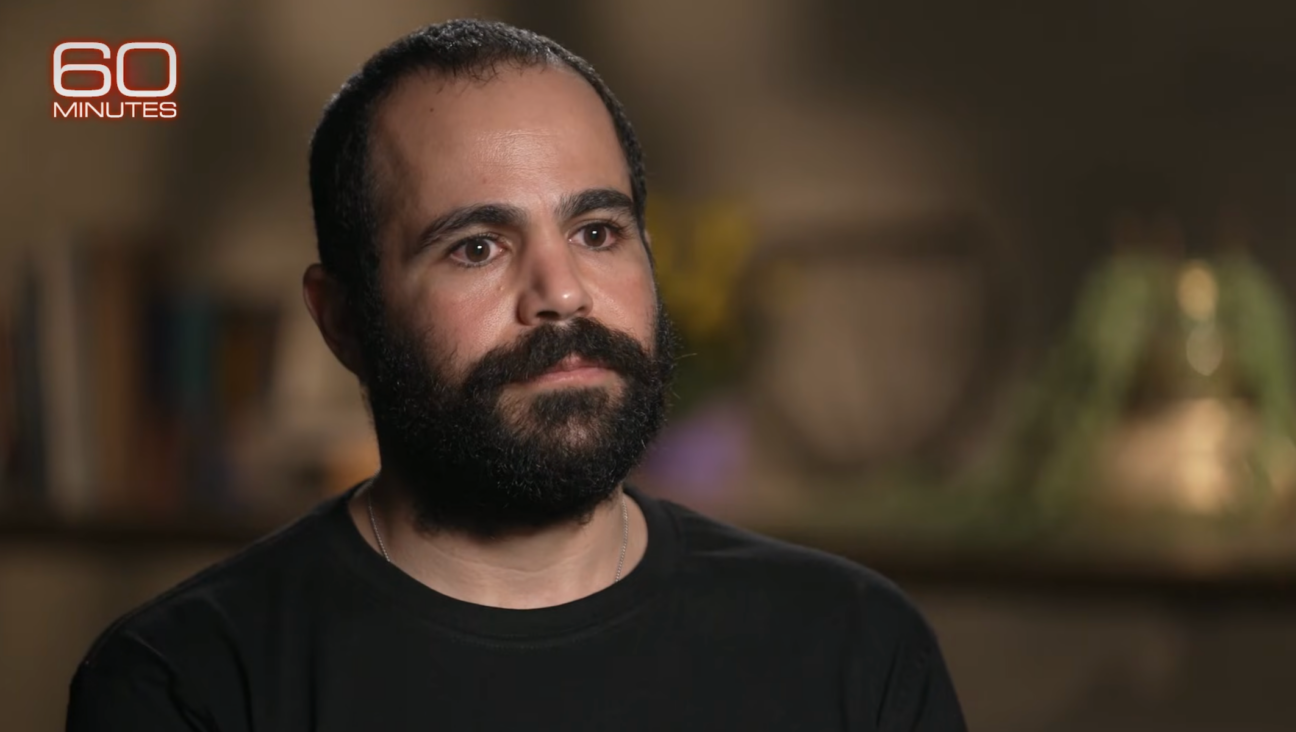
Fast Forward Yarden Bibas says ‘I am here because of Trump’ and pleads with him to stop the Gaza war
-
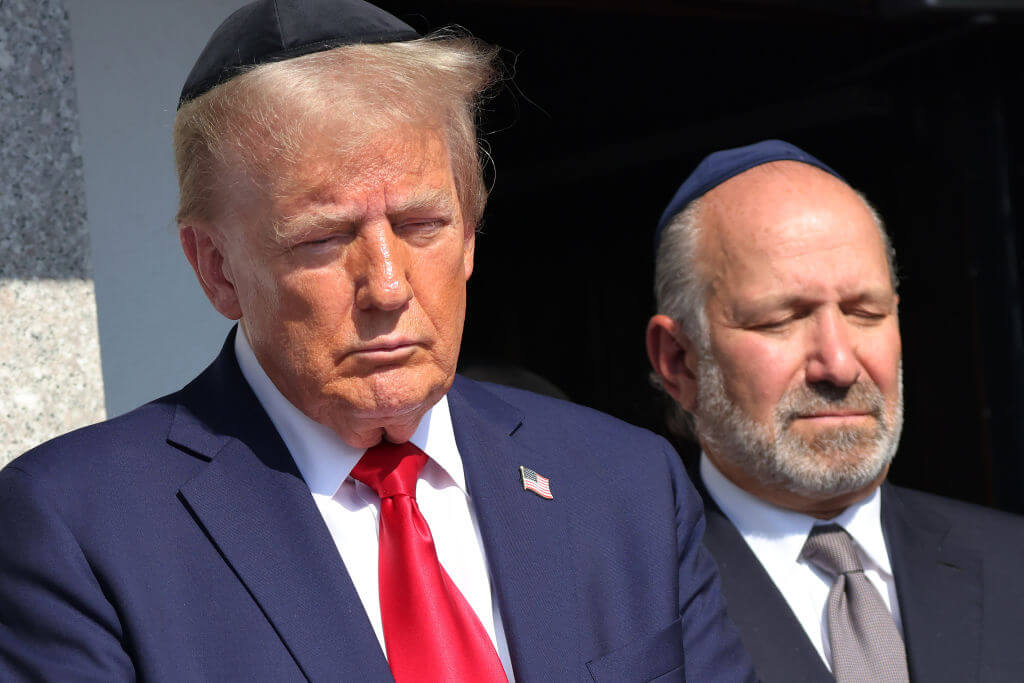
Fast Forward Trump’s plan to enlist Elon Musk began at Lubavitcher Rebbe’s grave
-
Shop the Forward Store
100% of profits support our journalism
Republish This Story
Please read before republishing
We’re happy to make this story available to republish for free, unless it originated with JTA, Haaretz or another publication (as indicated on the article) and as long as you follow our guidelines.
You must comply with the following:
- Credit the Forward
- Retain our pixel
- Preserve our canonical link in Google search
- Add a noindex tag in Google search
See our full guidelines for more information, and this guide for detail about canonical URLs.
To republish, copy the HTML by clicking on the yellow button to the right; it includes our tracking pixel, all paragraph styles and hyperlinks, the author byline and credit to the Forward. It does not include images; to avoid copyright violations, you must add them manually, following our guidelines. Please email us at [email protected], subject line “republish,” with any questions or to let us know what stories you’re picking up.








